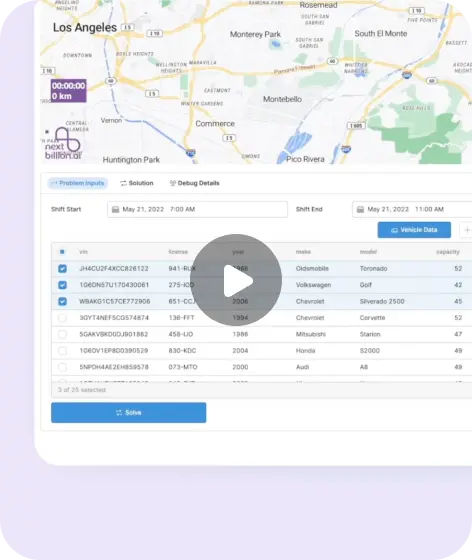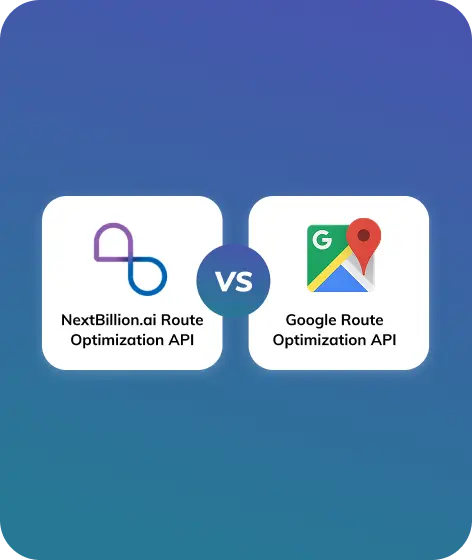Table of Contents
Dispatch Management
Dispatch management is critical for businesses and organizations of all sizes to efficiently allocate and oversee deliveries and service calls. While smaller operations can manage this manually, it becomes a logistical nightmare for those who handle hundreds or even thousands of orders per day. This complex process matches customer demands and equipment needs to the appropriate field service tasks, such as installations, repairs, and maintenance. It significantly simplifies dispatchers’ tasks, increasing their overall efficiency.
The primary benefit of dispatch management is its ability to optimize routes and schedules. It can help business owners improve the efficiency of deliveries, maintenance and repair tasks, and service visits while also reducing unnecessary operating costs. In today’s fast-paced business environment, effective dispatch management is critical. It enables businesses of all sizes to not only meet but exceed, customer expectations.
Challenges Related to Dispatch Management
Dispatch management presents a number of challenges, particularly for logistics firms, such as coordinating carriers, ensuring punctuality, dealing with disruptions, and maintaining communication. Ignoring these complexities can result in delays, inefficiencies, and dissatisfied customers. Some of the major challenges related to dispatch management are as follows:
Manual Operations: Manual dispatch handling tends to be slow and error-prone resulting in unnecessary delays, resource wastage, and consumer dissatisfaction. Effective dispatch management is necessary to minimize errors and improve efficiency.
Coordinating Complex Deliveries: Matching the suitable vehicle and driver with each delivery is a complicated task that becomes even more difficult with a larger fleet, multiple drivers, and various delivery areas. Efficient dispatch management should streamline and improve this coordination.
Real-Time Updates: Providing live delivery status updates can be challenging without real-time tracking. Exact delivery time estimation is essential, specifically when customers need to be present to receive their packages.
Adapting to Changes: Unexpected disruptions like traffic, weather, or last-minute order changes can disrupt schedules. Dispatch management should be flexible and responsive to these changes, minimizing delays.
Route Optimization: Choosing the most efficient fleet for each delivery can be time-consuming without intelligent optimization. Optimizing the route for a delivery vehicle with multiple stops can save time and decrease fuel costs.
Driver Safety: Assuring the safety of drivers on long and demanding routes is necessary. Properly managing driving times and breaks by monitoring hours can prevent fatigue-related accidents.
Customer Satisfaction: Meeting customer expectations for quick and reliable deliveries is a constant challenge, specifically when unforeseen issues arise. Dispatch management can provide real-time updates and manage ETAs to keep consumers informed and satisfied.
Cost Management: Balancing fuel cost and vehicle maintenance is a complex matter with the need for efficient deliveries. Effective dispatch management should assist in optimizing these factors to improve overall cost-effectiveness.
Regulatory Compliance: Staying compliant with transportation and safety regulations is a significant challenge. A comprehensive dispatch management solution should include features that assist users in remaining compliant.
Advantages of Effective Dispatch Management
The advantages of effective dispatch management are vast and impactful. It enables businesses to respond swiftly to urgent delivery requests, leveraging a map view to monitor driver locations throughout the day. This simplifies the allocation of critical deliveries to the nearest available vehicle, ensuring that even under tight deadlines, on-time deliveries are guaranteed.
Modern dispatch management provides efficient schedule optimization capabilities. It allows businesses to easily view and adjust individual drivers’ daily schedules, optimizing fleet efficiency by considering factors such as driver breaks and real-time traffic conditions. This flexibility ensures that operations run smoothly and efficiently.
Moreover, dispatch management offers real-time status monitoring, granting access to live delivery status information online. This feature facilitates early issue detection and timely resolution, offering customers the ability to track their deliveries in real time. This level of transparency enhances customer peace of mind, ultimately leading to increased satisfaction.
Lastly, advanced dispatch management systems incorporate automated uncompleted delivery rescheduling. In the event of unsuccessful deliveries, these systems automatically reschedule them for the following business day. This automation ensures that operations continue seamlessly without missed deadlines or customer frustration.
Dispatch management is a critical component of efficiency and effectiveness in industries that rely on timely deliveries and services. It addresses the complex challenges of resource coordination, route optimization, and real-time monitoring, all of which contribute to increased cost-efficiency, increased customer satisfaction, and overall streamlining of operational procedures. Adopting contemporary dispatch management solutions becomes not just a choice but a necessity as businesses work to meet the demands of a dynamic and fast-paced world. With its ability to respond quickly to urgent requests, optimize schedules, monitor real-time statuses, and automate delivery rescheduling, dispatch management enables businesses to navigate the intricate logistics of today’s world with precision, ensuring they stay competitive and deliver excellence in every service they provide.
Explore NextBillion.ai’s comprehensive range of Logistics Solutions.
We know that every business is different and we care about your unique needs.
With NextBillion.ai's Map API you get- Large Distance Matrix API with a Matrix size upto than 5000*5000
- Optimal routes with accurate ETAs
- Flexible navigation SDK that's easy to integrate and ready to use for developers
- Quick and accurate location data
- Track and trace routes taken along with other map attributes
- Create custom tiles for your interactive maps. Personalized to fit your brand aesthetic.




